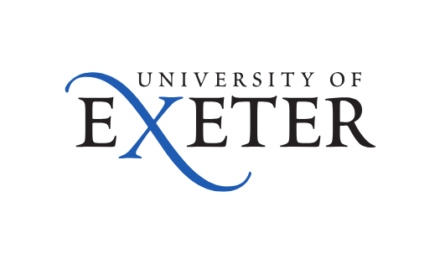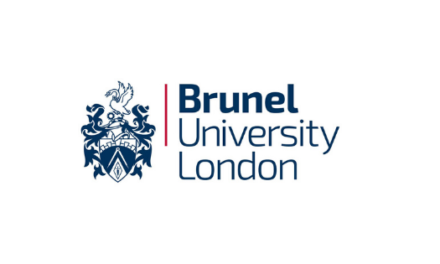The Opportunity
The Department of Biomedical Physiology and Kinesiology (BPK) invites applications for a tenuretrack faculty position at the rank of Assistant Professor in Neurorehabilitation to commence July 1, 2024, or a mutually agreed-upon date.
Desired research area
The ideal candidate will lead a research program on neurorehabilitation and recovery of function following disease, trauma, or age-related impairment with an emphasis on translational research using animal and/or human models. Areas may include but are not limited to the control of movement, sensory plasticity, autonomic regulation, cognitive rehabilitation, and/or developing assistive technologies. Through their research, the ideal candidate will participate in the newly established Institute for Neuroscience and Neurotechnology, as well as in technology innovation and entrepreneurship initiatives at SFU. The candidate will have a collaborative disposition and sufficiently broad interests and expertise to readily engage in collaborations with other researchers in BPK, SFU, and the broader neuroscience community.
Core duties of the Assistant Professor in Neurorehabilitation:
- Research: Develop an externally funded research program devoted to advancing the field of neurorehabilitation, supervise and mentor graduate students and other highly qualified personnel, and disseminate discoveries through peer-reviewed publications, conference presentations, and other forums appropriate to the discipline.
- Teaching: Teach undergraduate and graduate courses in the areas of neurorehabilitation and neuroscience, and contribute to curriculum and program development.
- Service: Serve the Department, the University, and the larger scientific community, by contributing to committee work and in departmental initiatives.
The typical workload distribution for assistant professors in BPK is 40% research, 40% teaching, and 20% service. In carrying out these duties, the successful candidate will advance BPK’s goals to foster equity, diversity, and inclusion; for example, by working to eliminate the barriers that impede the ability of department members from historically underrepresented and marginalized populations to achieve their full potential. The successful candidate will foster a positive and inclusive working environment through respectful interactions with all faculty, staff, and students. The responsibilities, terms, and conditions of employment of faculty are listed in the SFU-SFUFA collective agreement.
About the Department and University
About the Department of Biomedical Physiology and Kinesiology (BPK)
The mission of BPK is to advance the understanding of physiology, movement, neuroscience, and human health through fundamental and applied research, education, and service. BPK offers undergraduate degrees (BSc, BSc Honours) in kinesiology, biomedical physiology, and behavioural neuroscience, as well as graduate degrees (MSc, PhD). BPK is part of the Translational and Integrative Neuroscience (TRAIN) Graduate Specialization. The Department includes 24 research faculty, 9 continuing teaching faculty members, 7.4 staff members, approximately 50 graduate students, and over 1,000 undergraduate majors. BPK features research clusters in exercise and environmental physiology, cardiovascular physiology, chronic diseases, neuromechanics, and neuroscience.
About SFU
At the intersection of innovative education, cutting-edge research, and community engagement lies Simon Fraser University (SFU), Canada’s top-ranked comprehensive university. With three campuses located in beautiful British Columbia’s largest municipalities – Vancouver, Burnaby, and Surrey – our students, faculty, and staff are privileged to live and work on the traditional unceded territories of the xʷməθkʷəy̓əm (Musqueam), Sḵwx̱wú7mesh Úxwumixw (Squamish), səl̓ilw̓ətaʔɬ (Tsleil-Waututh), q̓íc̓əy̓ (Katzie), kʷikʷəƛ̓əm (Kwikwetlem), Qayqayt, Kwantlen, Semiahmoo, and Tsawwassen Peoples. Consistently ranked as one of Canada’s top employers, SFU’s excellence as an engaged university is derived from our shared commitments to diversity, equity, and inclusion, and the pursuit of decolonization, indigenization, and reconciliation.
SFU offers several unique assets to its research faculty that are particularly relevant to this position. This includes the newly established Institute for Neuroscience and Neurotechnology. SFU also hosts several core facilities, including the ImageTech Lab, which is embedded at Surrey Memorial Hospital and houses state-of-the-art MRI and MEG equipment, and eBrain Lab, which focuses on neuro-engineering solutions for mental health and addiction. Other relevant facilities include the recently opened core facility for wearable technologies (WearTech Labs), the Big Data Hub, 4D Labs for materials research and development, and a state-of-the-art animal research facility. SFU supports research translation through the SFU Knowledge Mobilization Initiative and innovation through SFU Innovates. As a testament to BPK and SFU’s culture of innovation, BPK professors have founded four companies in the past 20 years, while World University Rankings for Innovation 2023 ranked SFU second globally in the Entrepreneurial Spirit category and 13th globally in the Innovative Universities category. Metro Vancouver offers burgeoning wearable technology and biomedical device ecosystems, with several start-up and mid-sized companies now operating who are keen to engage in academic-industry partnerships. Several BPK faculty who conduct clinical research maintain affiliations with local hospitals including the BC Children’s -, Surrey Memorial -, Vancouver General -, and Royal Columbian Hospitals.
The Successful Candidate
The following credentials, skills, expertise, experience, values, and attitudes comprise the desired qualifications.
The successful candidate must:
- Hold a PhD, MD, or equivalent degree in neuroscience, rehabilitation sciences, kinesiology, biomedical engineering, or a related discipline.
- Have at least one year of postdoctoral or related research experience.
- Have demonstrated excellence in research in neurorehabilitation. Excellence will be assessed in various ways, including but not limited to the following criteria:
- Extensive experience conducting scientific studies in neurorehabilitation
- High-quality scientific publications in the leading peer-reviewed journals of the field
- Awards or external funding (e.g., scholarships)
- Disseminated discoveries via conferences, seminars, and other mechanisms for knowledge translation
- Articulate a compelling vision for a research program that addresses questions of fundamental importance to the field and has clear potential to attract top-quality trainees, external funding, new scientific collaborations, and uptake by knowledge users.
- Show clear potential for excellence as a mentor of research trainees, especially those from equity-deserving groups.
- Demonstrate deep and broad knowledge of the fields of neuroscience and neurorehabilitation to teach undergraduate and graduate courses effectively in these areas.
- Show strong potential for effective teaching of undergraduate courses and fostering of inclusive learning environments.
- Show strong potential for effective knowledge translation and community engagement.
- Suggest potential research collaborations in the Department.
- Demonstrate outstanding interpersonal and communication skills (oral and written, in English). These skills include but are not limited to strong listening skills, valuing and respecting diverse perspectives, and a collaborative disposition.
- Show strong potential to be an engaged academic citizen, in part by demonstrating a record of volunteerism and participation in service activities, such as committee work and outreach initiatives.
The following qualifications are considered assets:
- A degree in physical or occupational therapy.
- Interest and capability for running both animal and human research experiments to foster translation.
- Experience conducting research in diverse environments or from different perspectives.
- Show clear potential to collaborate within and outside the University.
- Previous or existing collaborations with leading researchers.
- Have assisted or led the teaching of undergraduate courses, and in so doing demonstrated keen interest in teaching, strong pedagogical skills, and effectiveness in fostering inclusive learning environments.
- Demonstrated experience in increasing diversity in their previous institutional environment(s) or in curricula.
- Experience or goals to apply research to better understand and address health issues affecting underrepresented populations.
- Interest, experience, and expertise in entrepreneurship and technology development.
- Leadership potential, demonstrated by leadership roles, formal leadership training, or leadership abilities.
How To Apply
Candidates should address their applications to Dr. Dan Marigold (he/him/his), Chair of the Search Committee. Applications should consist of a single PDF file inclusive of and bookmarked for the following components:
- A cover letter (maximum two pages) that addresses: 1) reasons for applying to the position, and 2) a narrative description highlighting evidence that the candidate meets the job qualifications and can effectively perform the listed job duties.
- A complete up-to-date curriculum vitae that lists the candidate’s education and employment history, publications and conference presentations, funding and awards, student supervision, collaborations/partnerships, teaching experience, and service activities.
- A research statement (maximum two pages) that describes the candidate’s research experience, goals, and a five-year plan for their research program.
- Three examples of peer-reviewed published scholarly work.
- A teaching statement (maximum one page) that describes the candidate’s teaching philosophy, teaching experience, and evidence of teaching effectiveness.
- A statement (maximum one page) describing past or potential contributions to enhancing equity, diversity, and inclusion within research, service, and teaching. Regarding the latter component, candidates should discuss their experience with and/or understanding of inclusive teaching and mentoring, and how the candidate would meet the needs of equitydeserving students.
- The names, titles, and email addresses of 3 or 4 referees who are qualified to assess the candidate’s research capabilities, at least one of whom can assess teaching potential. Referees will be contacted by SFU for candidates advancing to the later stages of the selection process.
- Please indicate your legal status to work in Canada.
Candidates should submit their applications by email to with the subject line neurorehab2023_<lastname>_<firstname>. Full consideration will be given to applications received by September 15, 2023. Applications received after this deadline may be reviewed if the position is still open.
SFU recognizes that alternative career paths and/or career interruptions (e.g., parental leave, leave due to illness) can impact research achievements and commits to ensuring that leaves are taken into careful consideration. Candidates are encouraged to highlight in their application how alternative paths and/or interruptions have impacted them. SFU also recognizes the value of mentoring and research training, outreach, professional service, and non-traditional areas of research and/or research outputs.
Simon Fraser University is an institution whose strength is based on our shared commitments to diversity, equity, and inclusion. Diversity is an underlying principle of our Strategic Vision, which pledges SFU to “foster a culture of inclusion and mutual respect, celebrating the diversity reflected among its students, faculty, staff, and our community.” SFU is committed to ensuring that no individual is denied access to employment opportunities for reasons unrelated to ability or qualifications. Consistent with this principle, SFU will advance the interests of underrepresented members of the work force, including Indigenous peoples, persons with disabilities, racialized persons, and women; embrace gender and sexual diversity; ensure that equal opportunity is afforded to all who seek employment at the University; and treat all employees equitably. Candidates that belong to underrepresented groups are particularly encouraged to apply.
SFU offers several benefits and services aimed at creating a more inclusive and accessible campus community for faculty; please see the Faculty Relations, Benefits and Service page for more details. SFU is also committed to ensuring that the application and interview process is accessible to all applicants. If you require accommodations or have questions about SFU benefits, services, accommodations policies, or equity considerations, please contact the Specialist, Equity, Diversity and Inclusion in Faculty Relations.
All qualified candidates are encouraged to apply; however, Canadian citizens and permanent residents will be given priority. Under the authority of the University Act, personal information that is required by the University for academic appointment competitions will be collected. For further details, refer to the Collection Notice.
The position is subject to availability of funding and approval by the SFU Board of Governors.
Inquiries regarding this posting may be directed to the BPK Chair’s Assistant, .



